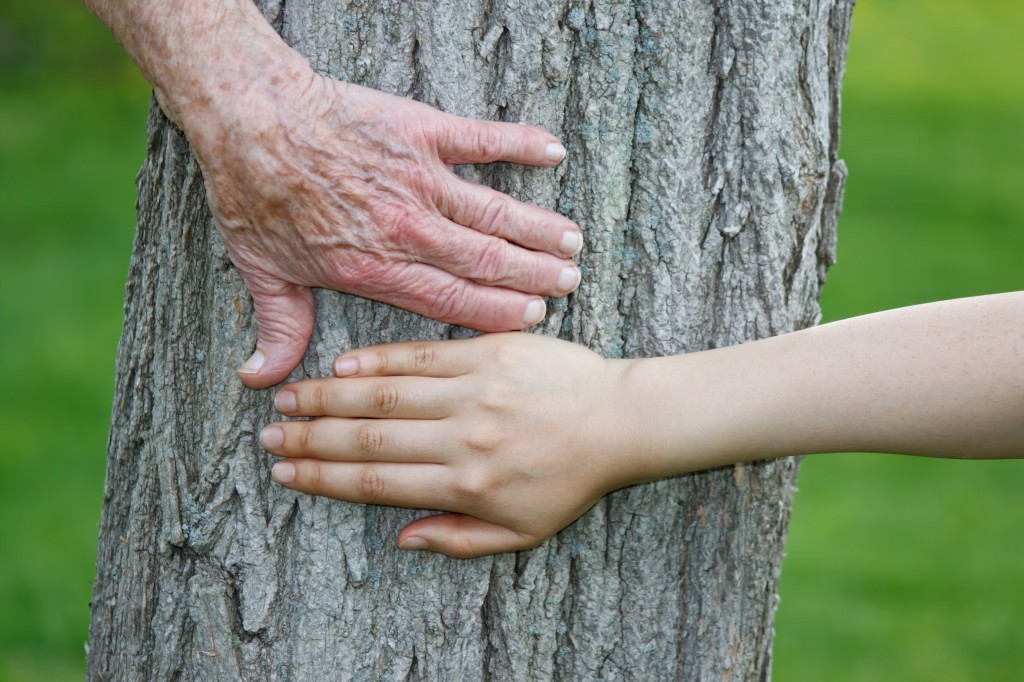The “Fuller Life”…Reflections on Growth, Happiness and Hope
We all hold the ideals of “Life, Liberty, and the Pursuit of Happiness” dear to our hearts. The hope of a long life, freedom and the potential of “feeling” happy motivates many to achieve more, overcome great adversity and dream big dreams.
I wonder if happiness really is the goal. Happiness is by nature a fleeting and momentary emotional experience. I would posit true happiness to be much deeper, flowing from an inner sense of peace, joy and contentment, all products of personal growth.
In my work as a family therapist, I have observed many people experience profound blocks to happiness, much less a deep sense of joy, love, and faith. These blocks are usually rooted in unmet needs, emotional wounds or relationship struggles. A therapeutic environment is a professional place where these hurts can be healed. Long-standing behavioral patterns or negative perceptions can be unearthed through strategic intervention, compassionate listening, and therapeutic approaches creating open space for a more meaningful life.
A different aim

In this light, the goal is growth. Margaret Fuller said, “Very early, I knew that the only object in life was to grow.” In the book, How People Grow, well-known authors of the Boundaries Series, Cloud and Townsend suggest real growth involves multiple layers of a persons’ makeup including emotions, relationships, spirit and mind. We are complex beings with layers of personality, emotions and beliefs. In family therapy, we rely on what we call “systems theory” to help us understand how all things work together and effect one another. Change on one level may or may not lead to growth on another…however an effect is felt.
When I look back at own life and mark the heights of personal growth, I notice a pattern of growth being accompanied by challenges, failure, or loss. Of course there are those struggles that have not yet produced the fruit of growth. I’m curious about how these particular difficulties that did produce growth differ from those that have not yet yielded growth. It turns out that this phenomenon (growth through how one responds to difficulty) is identified as a key component to long-range happiness in a longitudinal study of 268 men who were at Harvard together in the 1940s.
The happiness study
The study followed the men for 80 years over the course of their lives and is summarized in an article in The Atlantic entitled, “What makes us happy?” by Joshua Wolf Shenk. This notion of utilizing “mature adaptations” is one of the seven elements that predicted healthy aging both physically and psychologically.
The others were education, stable marriage, not smoking, not abusing alcohol, some exercise, and healthy weight. Of the 106 Harvard men who had five or six of these factors in their favor at age 50, half ended up at 80 as what Vaillant called “happy-well” and only 7.5 percent as “sad-sick.” Meanwhile, of the men who had three or fewer of the health factors at age 50, none ended up “happy-well” at 80. Even if they had been in adequate physical shape at 50, the men who had three or fewer protective factors were three times as likely to be dead at 80 as those with four or more factors.
To read more about this study see the article in The Atlantic. The feature identified as “mature adaptation” refers to how these men handled difficulty, adversity or struggle in their lives such as divorce, grief, trauma or failure. The methods defined as “mature” or the healthiest response includes
“altruism, humor, anticipation (looking ahead and planning for future discomfort), suppression (a conscious decision to postpone attention to an impulse or conflict, to be addressed in good time), and sublimation (finding outlets for feelings, like putting aggression into sport, or lust into courtship).”
These stand in opposition to other defenses we can employ such as acting out, being passive-aggressive, intellectualizing, dissociation, or repression.
What really matters
In the video, “The pursuit of Happiness,” George Vailant, the primary researcher of this landmark study, says simply in conclusion of his many years of study on happiness.
“This process is fun, it’s all change, but it’s just as much fun to have wrinkles and reminisce…the job isn’t about conforming, or keeping up with the Jones. It’s playing and working and loving, and loving is probably the most important. Happiness is love. Full Stop.”
Human forests
Dr. Vaillant also denotes how a life grows from a sapling to a Redwood. Our symbol of the full life is a tree. If a single life is like a single tree, many truths can be drawn about growth and fullness in life. Trees grow in groves or groups of trees to assist in shielding the harsh realities of weather and wind.
Similarly, humans grow in a context of family and social relationships. The quality of these relationships have a dramatic impact on the experience of our lives. For us, early relationships create root systems and provide either stability or a lack of stability. Trees, like humans, are incredibly resilient. This is in part due to their flexibility. A tree gently bends under heavy rain or strong winds, allowing it to survive. We also learn to adapt. No matter what the circumstance, we are creatures of adaptive functioning. Over time, this adaptive functioning can turn into what we might label, “dysfunction,” in spite of its true adaptive or protective purposed beginning. Life sometimes leaves us wounded, scared, or angry. These patterns of destructive emotions leave us stuck and “unhappy.”
Unlike trees, we have amazing and miraculous minds, capable of helping us to grow out of unhealthy patterns. We can heal from deeply wounding relationships, and learn hope for a life that gives back. A fruitful life is a full life. A full life is also a free life. We often become “free from” and the result is greater “freedom for”…enjoyment, growth or any other desire. The full life reflects enjoyment of living, breathing, knowing and being known, giving, growing, serving, sharing and hoping. There is much beauty to see, many people to love, and more hope to share. (Or life to grow.)
A full life?
Our aim at Fuller Life Family Therapy is to provide professional opportunity for growth for ALL people. Growth, as a goal, enables us to endure many trials in a positive light. A goal of growth provides a nice reframe with the power to free us from victim thinking and hope for how this experience can benefit instead of harm. Retrospectively, we can see how quite difficult times lead to the greatest times of growth. Therapy is an effective environment for healing and a calm place to recapture hope and dreams for a life that is full. Hence our slogan, “Healing Hearts, Hopeful Horizons!”
Once just a dream, the Fuller Life Family Therapy Institute seeks to provide quality Marriage and Family Therapy available to all people regardless of income or level of insurance; as well as fulfill the dreams of developing professional therapists by filling a gap in professional development with quality faith-based training. We are looking for partners in our efforts to help foster full lives in our community.
- For more information see how you can “Partner with Us.”
- Questions to ponder: How would your life differ if it were directed toward “life, liberty and a right to grow?”
- Check out this recipe for happiness based on research in the field of positive psychology: http://www.best-personal-growth-resources.com/recipe-for-happiness.html
Clinical Director at Fuller Life Family Therapy Institute










